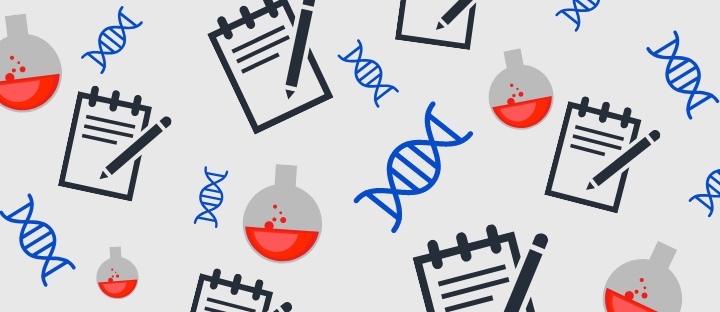#ScienceSaturday posts share relevant and exciting scientific news with the KAND community. This project is a collaboration between KIF1A.ORG’s Research Engagement Team Leader Alejandro Doval, President Kathryn Atchley, Science Communication Volunteer Aileen Lam and Chief Science Officer Dr. Dominique Lessard. Send news suggestions to our team at impact@kif1a.org.
Recent KIF1A-Related Research
Intracellular force comparison of pathogenic KIF1A, KIF5, and dynein by fluctuation analysis
Members of the kinesin superfamily of proteins, including KIF1A, take on many roles inside of our neurons that allow our nervous system to function optimally. This type of protein is also categorized as a “molecular motor protein,” reflective of the impressive amount of work being done by these microscopic proteins. Over the years, the scientific community has developed tools to measure the types of work being conducted by molecular motors like KIF1A. In the paper we are featuring today, researchers (including members of our KIF1A.ORG Research Network) out of Tohoku University and the Japan Science and Technology Agency investigated the force (e.g. how strong is a molecular machine?) and the velocity (e.g. how fast is a molecular machine?), in a range of molecular motor types, including KIF1A. What’s even more impressive is that these scientists were able to record these measurements as they were ongoing inside of the neuron in real time!
Specific to KAND, this research team also investigated how three KAND variants (V8M, A255V, and R350G) may impact the force and velocity of the KIF1A motor while transporting a KIF1A-relevant cargo called synaptic vesicle precursors. They observed that the V8M and A255V variants resulted in impaired force and velocity measurements meaning that the introduction of these variants makes the KIF1A motor slower and not as strong. However, the R350G variant showed little change and had similar properties to the wild-type (non-mutated) KIF1A motor. These types of studies are critical for the advancement of our understand of KAND mechanisms of disease – thank you to these research teams out of Japan! To learn more about the superpowers of the kinesin superfamily of proteins, check out the video below!
KIF1A.ORG News
KIF1A.ORG Now Hiring for a Research Engagement Director
We’re searching for a full-time Research Engagement Director! If you have scientific, research and/or communications experience and you want to join a community of people driving progress against neurodegenerative disease, check out this announcement.
Rare Roundup
Cost of raising a child with rare genetic disorder significant but could be reduced by earlier diagnosis
One commonly discussed challenged in the rare disease community revolves around the cost of raising a child, or caring for a loved one/oneself with a rare disease. Beyond medical expenses, these costs can trickle into every part of life such as specialized childcare, special education, equipment/transportation support, and more. This week we are featuring an article out of the Murdoch Children’s Research Institute (MCRI) in Australia, one of KIF1A.ORG’s collaborators, that touches on this topic. New research out of MCRI not only discusses the financial impact of rare disease, but also finds that earlier diagnosis and targeted treatment related to higher intellectual functioning could help reduced some of this cost. To conduct this study, researchers enrolled 108 families from disorder-specific support groups and organizations located in Australia. To learn more about this study, click the button below!
“The NDIS covers a lot of the expenses but not everything… the medical equipment needed isn’t cheap so we try to source second-hand equipment at markets where we can. On top of that we have the cost of all the specialist appointments, which easily mount up.”
Anu Madan
UArizona Researchers Develop Regenerative, Safe Therapeutic for Alzheimer’s Disease
Our friends at Patient Worthy tipped us off to a story out of University of Arizona, where researchers have repurposed a postpartum depression drug for Alzheimer’s disease in an early stage clinical trial that produced beneficial results. The drug “promotes connectivity between neural networks required for cognitive function by generating new neurons and synapses in patients in the early stages of Alzheimer’s disease.” Now, the academic researchers are moving forward with a Phase 2b clinical trial by launching a startup, NeuTherapeutics Inc.
“‘Starting up NeuTherapeutics is so exciting because we are creating the path to bring the first regenerative therapeutic for Alzheimer’s disease to those who need it. We believe that treatment with allo will restore brain function and independence for patients,’ said Brinton, a Regents Professor of pharmacology and neurology. ‘Regenerating the brain means regenerating a life.'”

